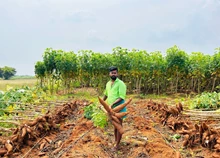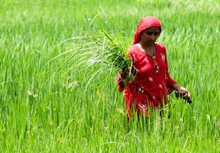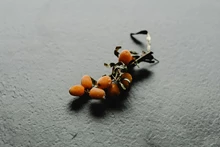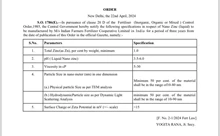
According to Ravi Prakash, a senior official with the Directorate of Plant Protection, Quarantine, and Storage (DPPQS), three government ministries are collaborating to accelerate drone usage in the farm sector. According to him, the DPPQS's Central Insecticide Board and Registration Committee (CIB&RC) has received petitions from eight crop protection businesses seeking permission to undertake drone trials.
Prakash, speaking online at an industry roundtable hosted by CropLife India and non-profit ThinkAg, said drones are economical for farmers and help them achieve better results.
According to a statement, Prakash said at the roundtable discussion, "The Directorate General of Civil Aviation (DGCA), the agriculture ministry, and CIB&RC are working together to fast-track applications and adoption of drones in the agriculture sector, including crop health monitoring and soil nutrient spraying."
Asitava Sen, CEO of industry group CropLife India, said the policy foundation for drones is in place, and now is the best moment to push drones in the farm sector.
"We should investigate how all stakeholders might collaborate to help build a favourable ecosystem for drone uses in agriculture, particularly pesticide spraying," he said.
"NIPHM has designed a ten-day integrated training programme for both flight and spraying for drone pilots and operators, which is awaiting DGCA permission," said Vidhu Kampurath P, Joint Director of Plant Health Engineering at the National Institute of Plant Health Management. This will assist a drone pilot in obtaining a ten-year drone pilot's licence.
He added that the institute is intending to partner with other central and state agriculture universities and institutes for a pan-India rollout of the training, which is both obligatory and important to ensure optimal and proper drone handling.
According to Smit Shah, President of the Drone Federation of India, "The prohibition on finished drone imports is a positive step that will aid the growth of the domestic drone manufacturing business. Drones' basic components, such as engines and batteries, can still be imported without limits for local production."
The use of drones for spraying agrochemicals in the country, according to Bayer Crop Science Grower Digital Connect Lead Dinesh Sharma, will assist alleviate the agriculture sector's workforce deficit, particularly during peak harvest seasons.
"However, the country requires skilled operators and service providers for drones, as well as large-scale demonstrations to raise awareness and adoption of this technology," he said, adding that drone spraying will be a seasonal business and that entrepreneurs' interests must be protected given the country's small landholdings.











